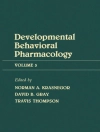This book discusses the challenges arising in the application of the United Nations Convention on the Rights of Persons with Disabilities (CRPD) in the provision of mental health care by presenting the views of the parties most directly concerned – people with lived experience of mental illness, their carers, psychiatrists, legal experts, public health workers and planners. Rather than talking about theory, the representatives of these groups express their views in relation to a series of case stories related to mental health in different countries and cultures.
In addition to the presentation of views and arguments related to the case stories presented, there are descriptions of the application of the CRPD on mental health legislation in China, Egypt, Fiji, France, Georgia, Germany, Mexico and Scotland – countries differing in their legal tradition, income and level of resources invested into mental health care.
Jadual kandungan
PART I: The United Nations Convention on the rights of Persons with Disabilities.- Chapter 1. Introduction.- Chapter 2: The CRPD in the context of other international human rights statements and mental health programs.- PART II: The application of the CRPD and related regulations in mental health care practice: issues arising.- Chapter 3. The exploration of issues arising in practice using the case history method.- Part III: CRPD and the context of mental health legislation in countries influenced by different legal traditions.- Chapter 4. China.- Chapter 5. Egypt.- Chapter 6. Fiji.- Chapter 7. France.- Chapter 8. Georgia.- Chapter 9. Germany.- Chapter 10. Mexico/Latin America.- Chapter 11. Scotland.- Part IV: Responses to issues arising in the application of the CRPD and related regulations.- Chapter 12. World Psychiatric Association.- Chapter 13. Nongovernmental organisations promoting human rights of people with lived experience of mental health conditions.- Part V:Conclusion.- Chapter 14. Ways of making the CRPD useful to the development of mental health care.- Appendices.
Mengenai Pengarang
Professor Neeraj Gill, MBBS, MD (Psychiatry), FRANZCP, Dr PH is a Professor of Psychiatry at the School of Medicine and Dentistry, Griffith University, Gold Coast, Australia and Professor, Public Mental Health at the Mental Health Policy Unit, Health Research Institute, The University of Canberra, ACT, Australia. He is a psychiatrist at the Gold Coast Health, Australia. He is the Secretary of the World Psychiatric Association (WPA) Section on Psychiatry, Law and Ethics and the Regional Vice-President, Oceania, for the World Federation for Mental Health (WFMH). He was awarded the degree of Doctor of Public Health (Dr PH) by the University of New South Wales, Sydney, Australia in 2020, based on his doctoral thesis on ‘human rights of people with mental disabilities’. He has published many academic papers on human rights, mental health law and Indigenous Australian social and emotional wellbeing.
Professor Norman Sartorius, MD, Ph D, FRCPsych holdsprofessorial appointments at several universities in Europe, and the USA. He was the Director of the Mental Health Programme of the WHO, President of the World Psychiatric Association and of the European Psychiatric Association. He is currently President of the Association for the Improvement of Mental Health Programmes in Geneva. Currently his main interests are problems related to comorbidity of mental and physical disorders, the fight against stigma and the education of stakeholders (and in particular psychiatrists early in their career) in mental health care. He has published more than 500 articles in scientific journals and written, co-authored or edited more than 100 books.












